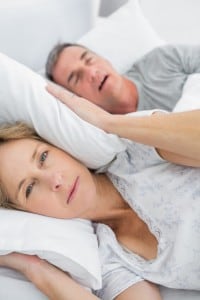The Most Common Health Risks Of Snoring

Regardless of whether you have snoring that occurs on its own or snoring caused by sleep apnea, it’s a red flag indicating that proper airflow and oxygen exchange aren’t optimal during sleep. You probably know that you could have a poor night’s sleep and wake up tired as a result. However, snoring can lead to some fairly serious health risks.
In this blog, the snoring specialist at eos dental sleep will address the top health risks of snoring and explain why getting effective snoring treatment is important.
What are the health risks of snoring?
Habitual snorers may be at risk for serious health risks of snoring that can have a substantial effect on their well-being. They include the following:
- Strain on the heart, as well as an increased risk of heart attack and stroke
- Irregular heartbeat
- Obesity
- Low oxygen levels in the blood – this can cause constricted blood vessels in the lungs, which can eventually lead to pulmonary hypertension.
- Depression
- Repeated interruptions of breathing
- Waking up frequently at night – you may not even be aware that this is happening
- Chronic headaches
- Daytime sleepiness – poor sleep that continues over time can make you sleepy during the day, interfering with your quality of life and compromising your safety when you’re behind the wheel.
Where are the treatment options for snoring?
Oral appliance therapy can be as effective and more convenient than using a continuous positive airway pressure (CPAP) machine. Many patients find this machine too difficult to use and that that it can be uncomfortable and noisy. It’s quite common for patients to abandon the use of CPAP after a few nights.
In contrast, oral appliance therapy is small, easy to use, and is more comfortable than CPAP because it’s not a one-size-fits-all approach. The type of oral appliance is selected based on each patient’s needs and is then custom fit for optimal comfort.
The mandibular advancement device (MAD) is similar to a mouth guard you wear while you’re playing sports. It gently coaxes the jaw into a position that helps keep your airway open.
Where can I be treated for my snoring in Philadelphia?
At eos dental sleep, Dr. Marc Levin is specially trained to treat snoring and its symptoms. He uses a non-invasive treatment called oral appliance therapy to successfully treat patients with a snoring problem. If left untreated, they can be exposed to the many health risks associated with snoring.
Dr. Levin will take impressions of your teeth and use these molds to create a custom-fit appliance to comfortably fit your mouth and correct your specific issues. It’s often very effective for people who snore because their tongue falls back into the airway at night and obstructs their breathing. It can also help treat your snoring if you have a narrow airway or large tongue. An oral appliance can gently tease the jaw forward, which increases the size of your upper airway. This effectively reduces the air resistance that can cause snoring.
To learn more about using oral appliance therapy and to find out if it would be a good way to treat snoring in your particular case, schedule an appointment with Dr. Levin at eos dental sleep.
In the meantime, take our Snore Quiz to help gauge the severity of your snoring problem and learn whether you would benefit from treatment. Health risks of snoring can be quite serious, so it's important to receive effective treatment.
